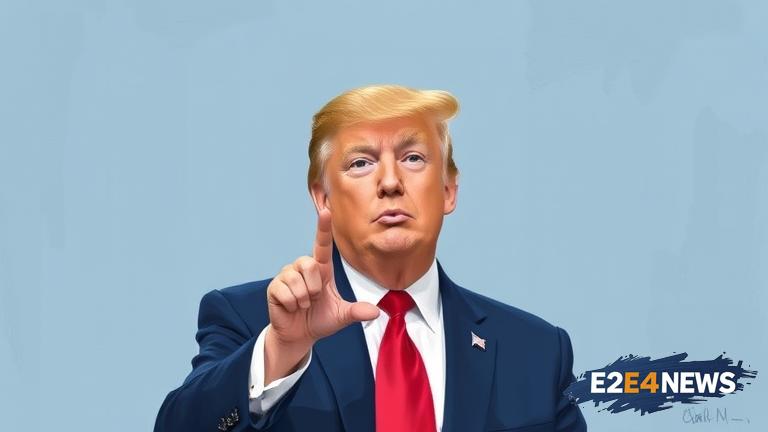In a move that has sent shockwaves through the international trade community, President Trump has suspended the de minimis rule, a longstanding regulation that allowed for the duty-free importation of low-value goods. The de minimis rule, which was established in 2016, permitted the importation of goods valued at $800 or less without the need for customs forms or duties. This rule was seen as a boon for e-commerce, as it facilitated the rapid and efficient movement of low-value goods across borders. However, with the suspension of the de minimis rule, businesses and consumers can expect to face increased costs and bureaucratic hurdles when importing goods from abroad. The suspension of the de minimis rule is part of a broader effort by the Trump administration to reexamine and renegotiate US trade policies. The administration has argued that the de minimis rule has been exploited by foreign companies, which have used it to avoid paying duties on goods that are actually subject to tariffs. By suspending the de minimis rule, the administration hopes to level the playing field for US businesses and protect American jobs. However, critics argue that the suspension of the de minimis rule will have far-reaching and unintended consequences, including increased costs for consumers and decreased competitiveness for US businesses. The suspension of the de minimis rule is also likely to affect the way that e-commerce companies operate, as they will need to navigate a more complex and bureaucratic system for importing goods. This could lead to increased costs and delays for consumers, as well as decreased sales for businesses that rely on international trade. Furthermore, the suspension of the de minimis rule may also have implications for the US economy as a whole, as it could lead to decreased economic growth and increased unemployment. The de minimis rule was originally established as part of the Trade Facilitation and Trade Enforcement Act of 2015, which aimed to simplify and streamline international trade. The rule was seen as a key component of the act, as it helped to reduce the administrative burden on businesses and increase the efficiency of international trade. However, with the suspension of the de minimis rule, businesses and consumers will need to adapt to a new and more complex system for importing goods. The suspension of the de minimis rule is also likely to affect the way that customs agencies operate, as they will need to process and inspect more goods. This could lead to increased wait times and decreased efficiency at ports of entry, which could have far-reaching consequences for the US economy. In addition, the suspension of the de minimis rule may also have implications for US trade relationships with other countries, as it could be seen as a protectionist measure. This could lead to retaliatory measures from other countries, which could further exacerbate the situation. The Trump administration has argued that the suspension of the de minimis rule is necessary to protect US businesses and jobs, but critics argue that it will have the opposite effect. They argue that the suspension of the de minimis rule will lead to increased costs and decreased competitiveness for US businesses, which could ultimately harm the US economy. The suspension of the de minimis rule is a complex issue with far-reaching implications, and it remains to be seen how it will play out in the coming months and years. As the situation continues to unfold, businesses and consumers will need to stay informed and adapt to the changing landscape of international trade. The suspension of the de minimis rule is a significant development in US trade policy, and it will be important to monitor its effects on the US economy and international trade relationships. In conclusion, the suspension of the de minimis rule is a complex and multifaceted issue that will have far-reaching implications for businesses, consumers, and the US economy as a whole. As the situation continues to evolve, it will be important to stay informed and adapt to the changing landscape of international trade.
